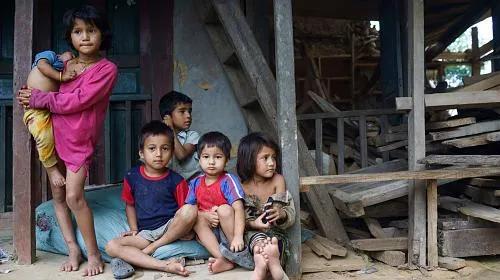(Geneva, April 24, 2020) – Diaspora communities around the globe are being hit hard by lockdowns, layoffs and illnesses to due to COVID-19. According to recent analysis from the World Bank, remittances to low and middle-income countries are projected to fall by 19.7 percent to $445 billion (from $554 billion in 2019), leaving millions of people who rely on remittances for survival at risk of losing these critical lifelines.
While both those sending money overseas and those receiving it are being affected, CARE is concerned about vulnerable communities in low income countries, including those already affected by the compounding impacts of severe weather events or conflict.
“Countries heavily reliant on remittances, tend to also be reliant on humanitarian aid – but with both of these critical funding sources depleting as a result of COVID-19, we are left with a very bleak picture of the future for millions,” says Delphine Pinault, CARE International’s Humanitarian Policy Advocacy Coordinator & UN Representative. “Women are being hit especially hard by these economic repercussions; they are more likely to work in informal and low-paid jobs – often without wage protection – and depend on remittances and aid to ensure their families survival.”
Take Tonga, a small island developing state, heavily reliant on tourism which makes up 20 percent of the GDP. Here remittances represent more than 35 percent of the GDP, ranking it number 1 in the World Bank’s ranking of countries with the highest remittance percentage per GDP. The country where more than 20 percent of the population live under the poverty line has also just been hit by a category 5 cyclone which left homes and water sources significantly damaged in communities already facing food insecurity. “These elements together create a perfect storm of risk factors that will have a huge social and economic impact on an already poor and vulnerable population,” Pinault continues.
In Nepal, a country which received $8.1 billion in remittances in 2018 – ranking 5th on the World Bank list – the situation for many is also dire. “Due to the lock down restrictions, Nepali migrant workers in India who used to send money back to their families in rural Nepali areas, are now coming back to Nepal with no source of income and limited means to feed their families,” says Pinault.
In these countries, as in many others, remittances and aid are crucial for people’s survival. Financial support from aid agencies and from migrant diaspora’s have played a critical role in helping people to meet their basic needs; in connecting vulnerable people in rural areas to the banking system providing access to credit and the opportunity to invest in small businesses.
“The $2 billion COVID-19 specific global humanitarian response fund was only 30 percent funded as of April,” adds Pinault. “Shrinking remittances leaves an even bigger gap and will potentially lead to an unacceptable loss of lives. While countries the world over are struggling with the economic impact of COVID-19 domestically, we simply cannot afford to ignore the suffering of the poorer and weaker nations who so desperately need the world’s more highly developed economies, to stand in solidarity with them too.”
Spokespeople:
Delphine Pinault
Humanitarian Policy Advocacy Coordinator & UN Representative, CARE International
Email: pinault@careinternational.org, Mobile & WhatsApp +33 (0) 6 37 79 17 54
On Nepal:
Lora Wuennenberg
Country Director, CARE Nepal
Email: Lora.wuennenberg@care.org
Thakur Prasad Chauhan
Program Coordinator, CARE Nepal
Email: thakur.chauhan@care.org

